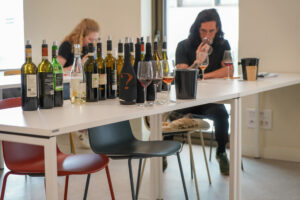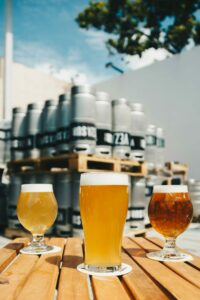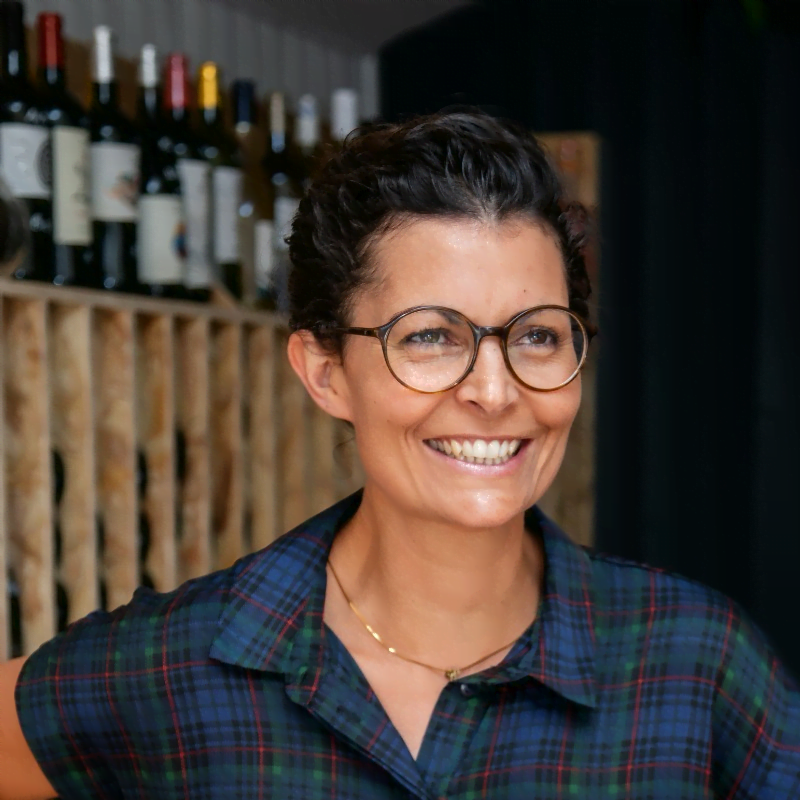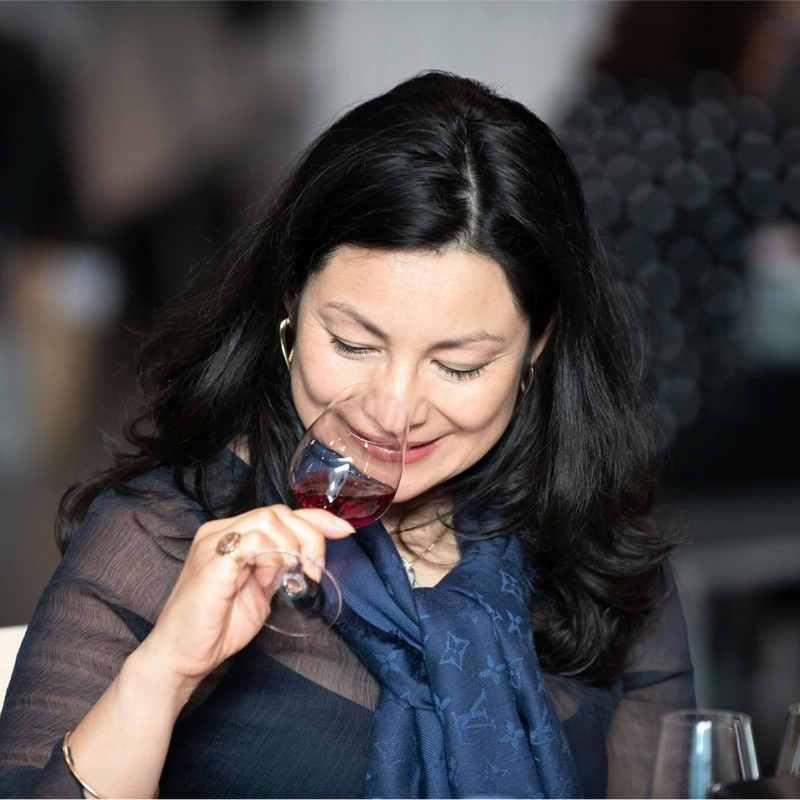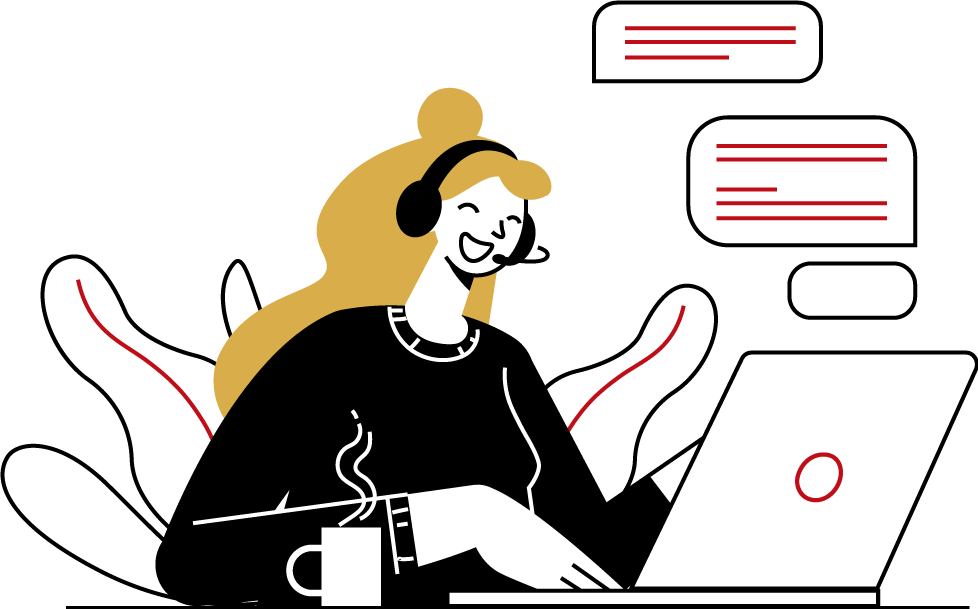Originally from Bordeaux, Matthias Seignette turned his passion for wine into a career. After working for over ten years in family estates in Bordeaux and in wine trading, he traveled the world meeting producers across Europe and Asia. This curiosity eventually led him to the prestigious WSET Diploma, before deciding to share his knowledge. In 2018, he chose to become a trainer. Today, accredited by Vins de Bordeaux and the WSET, he works with both professionals and enthusiasts, in sommelier schools as well as at the Bordeaux Wine School.
Matthias, can you tell us about your journey and what led you to the world of wine?
I studied business and completed a work-study bachelor’s degree while working in Sauternes. The storytelling behind these wines is remarkable, and that ignited my passion for wine.
You’ve held very diverse roles in the wine industry. What did you take away from each experience, and which ones pushed you to become a trainer?
It’s incredible to understand production, professional sales (trading), and then direct sales and client advice. All of this helps me daily in establishing credibility as a trainer. What pushed me to become a trainer was the desire to share my passion for wine every day. I was also tired of pure wine sales because I spent more time negotiating than actually talking about the wine itself.
You teach the “Advising and Promoting Bordeaux Wines” course at WiSP. Why this passion for Bordeaux vineyards?
Because Bordeaux is my region, and I want to put my energy into defending its wines. There’s a huge variety of styles and price points, and we need to explain that to the world.
Was there a trigger moment or a decisive encounter that led you to teaching wine?
After almost 10 years selling wine abroad, I was burned out. I went through unemployment and approached many training centers because I wanted to talk about wine in a detailed and passionate way. Eventually, it paid off!
How did you become a WSET trainer at WiSP?
Training spots are highly sought after. I approached WiSP, waited several months, and one day a spot opened up, giving me the chance for a trial… which went well.
What do you enjoy most about teaching and mentoring?
The truth. I don’t represent producers or companies when I teach, so I can tell it like it is—respecting everyone involved, and without necessarily naming names when topics are sensitive. I see that my students appreciate this. Customers are looking for transparency and honesty.
What are the main challenges your students face in WSET Level 2 and 3?
At Level 2, challenges are less intense than at Level 3. For example, foreign wine regions like Italy can be tricky because of the many unique grape varieties and appellations. Fortified and sparkling wines are a bit technical and have a logic different from classic vinification, which can be confusing.
At Level 3, the main challenge is understanding the logic of the exam itself. There are many more appellations to memorize, and students need to know the climates of each country in detail to understand stylistic differences. Fortified and sparkling wines are also challenging for the reasons mentioned earlier. This theoretical knowledge is crucial for answering the dreaded open-ended questions, which are the main difficulty at Level 3.
Any tips?
To succeed in the exam, you must understand the logic behind the questions. In class, no matter the wine or chapter, I always ask students to justify the PQS (Price, Quality, Style) using natural or human factors!
What advice would you give to someone hesitant about starting a WSET wine course?
People really gain confidence in talking about wine after the courses. They build expertise and can share their knowledge. It’s fantastic!
Can you describe your teaching methods? Do you have a particular “signature”?
Humor, being dynamic, engaging the audience. And of course, having solid knowledge of the wine world reassures students.
How do you make technical or complex wine concepts accessible?
That’s almost my specialty! I always aim to simplify things. I refuse to use technical jargon just to impress. That said, you need a solid mastery of the technical side. I find simpler synonyms, use gestures, and sometimes compare to everyday situations to illustrate points.
What role does tasting play in your teaching approach?
A big one! I spend more time on tasting than many other trainers. Much of the theory can be illustrated in a glass of wine, which really resonates with students. People retain information better when they can “taste” it rather than just hear it.
If you had to summarize your teaching philosophy in one sentence, what would it be?
Be fun, precise, and dynamic.
